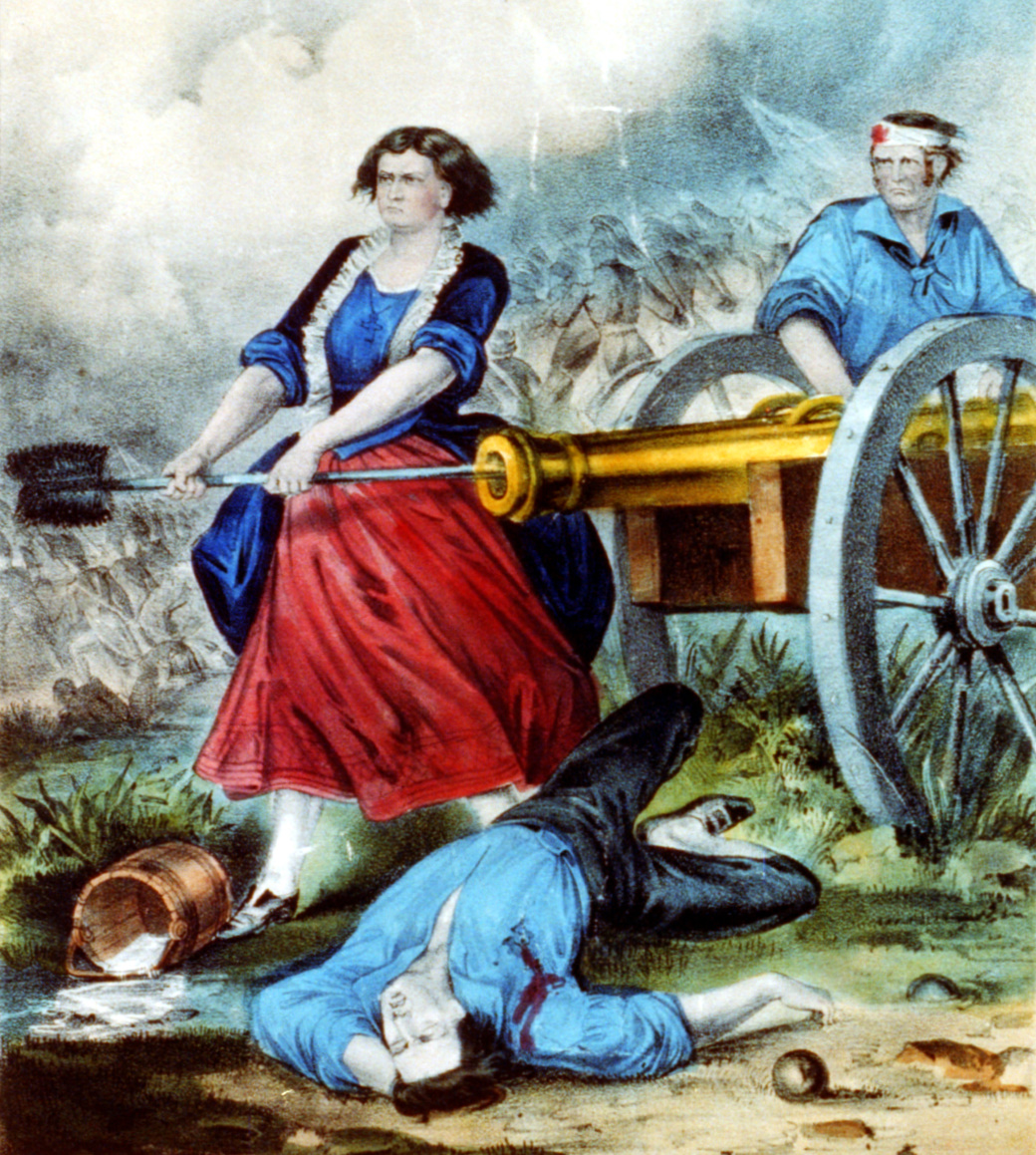 |
| Currier and Ives painting of Molly Pitcher |
Mary Hays McCauley was an
American Revolution heroine who earned herself the nickname “Molly Pitcher” for
her brave actions during the Battle of Monmouth. Her dedication and
fearlessness are legendary.
Molly Pitcher was born near Trenton,
New Jersey on October 13, 1754. Her parents were German immigrants, whose names
are not known. Her maiden is not known for certain either, but it may have been
Ludwig.
In 1769, at the age of fifteen,
Mary Hays McCauley went to work for future Colonial Army colonel and Brigadier
General, Dr. William Irvine. She worked in his household as a maid, but she was
not happy in her position. She soon fell in love with a barber named John
Casper Hays and left her place of employment to marry him. John soon enlisted
in the artillery of the Continental Army. When John went off to war, Mary
followed.
During the Revolutionary War, it
was common for women to follow their men so that they may do chores such as
washing and cooking for them. They were also handy for tending the wounded.
Mary Hays McCauley was present with her husband at Valley Forge, but it was at
the Battle of Monmouth that she proved that she could do far more than cook and
clean. The temperature was very hot on the battlefield, so Mary decided to begin
collecting pitchers of water from a nearby water source and bringing them to
the men on the battlefield. This is what earned her the fond moniker Molly
Pitcher.
At some point during the battle,
Mary Hays McCauley’s husband collapsed beside his canon. Some reports say that
he had been wounded but that Mary noticed that he would survive. The men around
her watched as Molly Pitcher took up her husband’s post and began firing his
canon. She supposedly did this for the remainder of the day. Joseph Plumb Martin,
who had witnessed Mary’s bravery, wrote of her in his memoirs. He stated that
an enemy canon ball had gone straight between Mary’s legs. She behaved as if
nothing untoward had happened and continued firing her canon. She did however
remark upon what would have happened had the canon ball been a little higher.
The story goes that, after the
battle, brave Molly Pitcher was presented to George Washington himself, who
commended her for her efforts. He supposedly also gave her a new nickname,
“Sergeant.” She soon became legendary among the colonial troops.
After the war, Mary Hays
McCauley and her husband moved to Carlisle, Pennsylvania. John Casper Hays died
there in 1789. Mary remarried shortly thereafter, to a man named George
McCauley. Reportedly, McCauley was not particularly kind to his wife and
treated her as if she were a servant. Their union was not a happy one and they
were not well off financially.
An answer to some of Mary Hays
McCauley’s troubles came in 1822. The local government decided that she earned
herself a lifetime annuity for her services. She collected that annuity every
year until her death in Carlisle, Pennsylvania on January 22, 1832.
No comments:
Post a Comment